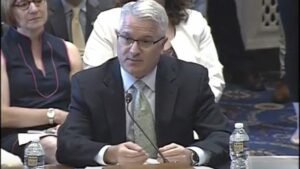The American Seed Trade Association (ASTA) president and CEO, Andy LaVigne, issued a statement regarding the U.S. Environmental Protection Agency’s (EPA) final rule on Plant Incorporated Protectants (PIPs) according to a release. LaVigne noted:
“EPA’s publication of its final rule on Plant Incorporated Protectants (PIPs) is a disappointing blow to plant breeders, public and private, working to bring innovative plant varieties to U.S. farmers and producers. Rather than improving and modernizing the U.S. biotechnology regulatory system, as called for by multiple administrations, EPA’s new rule adds bureaucratic layers of red tape for the development of improved plant varieties created using innovative plant breeding techniques, like genome editing — even though the agency views those products as posing no greater risk than their conventional counterparts.
“The competitiveness of the U.S. seed industry, and agriculture as a whole, rely on domestic and global policy alignment. At the domestic level, the EPA rule is a setback for interagency alignment under the U.S. Coordinated Framework, in essence negating much of the regulatory streamlining enabled and envisioned under USDA’s recent revisions to its Part 340 regulations.
“Internationally, EPA is handing a strategic advantage to foreign seed development and will delay U.S. farmers’ access to improved seed varieties compared to other parts of the world. The rule is out of step with a growing list of international regulatory authorities that have used a science-based rationale to streamline their policies to support commercialization of innovative products. Notably, Canada, the U.S.’ top trading partner for seeds, very recently announced a forward-thinking policy for plant breeding innovation. In contrast to EPA’s rule, the updated Canadian policy focuses on the characteristic of the product, and not the process—whether conventional breeding, genome editing, or genetic engineering—used to develop that product.
“The ramifications of EPA’s policy for U.S. innovation are potentially widespread and significant, especially when it comes to impacts on small and medium-sized entities in the U.S.—particularly in fruits, vegetables and other small acreage crops. The cost of EPA’s new regulatory burden will ensure that only the largest of companies can afford to develop future innovations, resulting in the unintended consequence of driving additional industry consolidation.
“Disregarding the increasing pressures facing the future of food and agriculture production, EPA is turning back the clock on U.S. innovation. The innovative solutions to climate change adaptation and mitigation aspired to in the Biden Administration’s Bold Goals for U.S. Biotechnology and Biomanufacturing will remain dreams rather than reality.”











